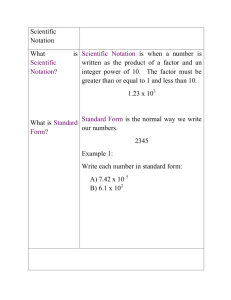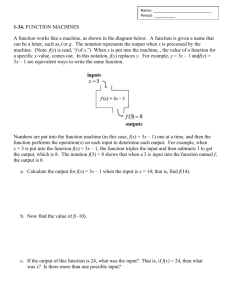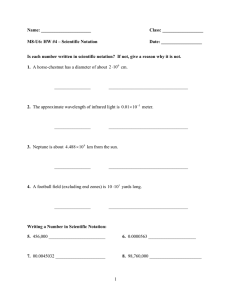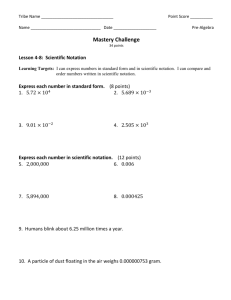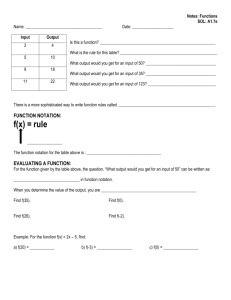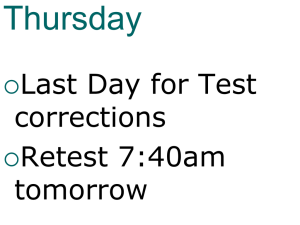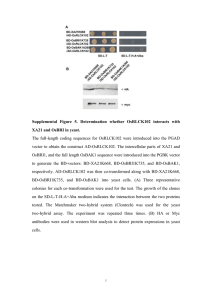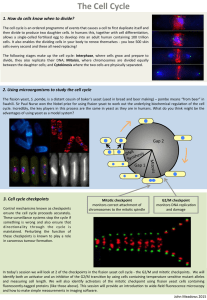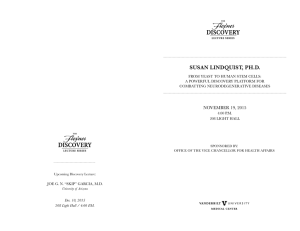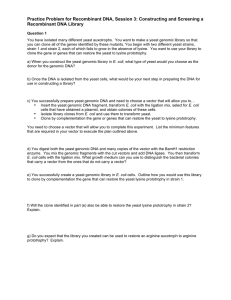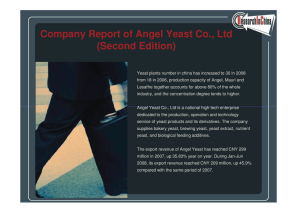Yeast Lab Introduction
advertisement
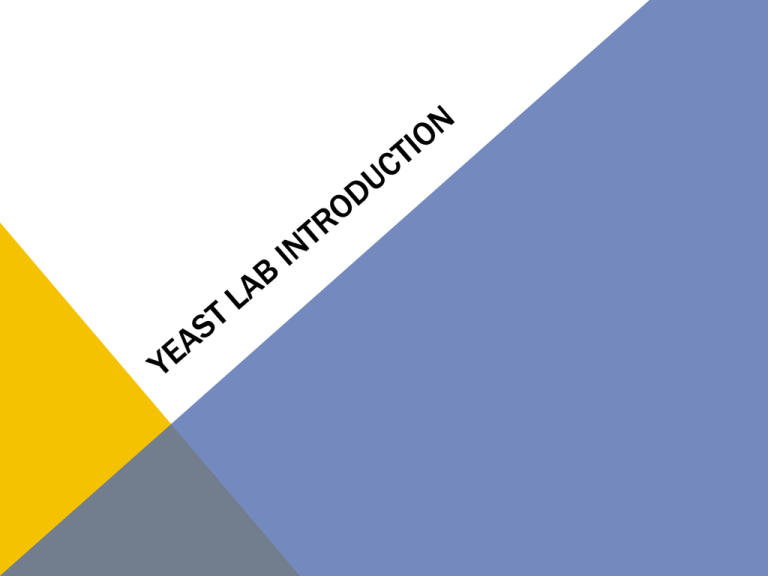
WHAT ARE YEAST? • Eukaryotic microorganisms • Types of fungi • Unicellular organisms • Molds • Used in winemaking, baking, and brewing • Fermentation is the process in which the yeast converts carbohydrates to carbon dioxide and alcohols SO WHAT? WHY ARE WE TALKING ABOUT YEAST? • Yeasts are model organisms • Size • Generation time • Accessibility • Ease of care and manipulation • We are going to use them next week in an experiment to study populations • You will work with your group to sample a population of yeast over 8 days TODAY • Learn how to calculate population sizes from a sample collected • Recall the sampling lab from last week • Your practice calculations sheet will be due on BLOCK • Practice these calculations (Check for Understanding this FRIDAY) SCIENTIFIC NOTATION… …A quick way to write really, really BIG (or really, really, small) numbers • Using powers of 10, you can create short versions of long numbers • Proper Scientific Notation • A number must be between 1 and 10 • Must be multiplied by a power of ten • Ex: 45 X 108 is NOT proper scientific notation. Why not? EXAMPLES OF SCIENTIFIC NOTATION • 76,000,000 can be rewritten as… • 7.6 X 107 • 0.000000089 can be rewritten as… • 8.9 X 10-8 YOUR TURN Use Scientific Notation to rewrite the following numbers: 1. 347,000 2. 902,000,000 3. 0.0000614 Answers: 1. 3.47 X 105 2. 9.02 X 108 3. 6.14 X 10-5 SWITCH THESE BACK TO THEIR LONG FORMS 1. 6.08 X 106 2. 1.23 X 105 3. 8.25 X 10-2 Answers 1. 6,080,000 2. 123,000 3. 0.0825 HEMOCYTOMETER SLIDE WE WILL BE USING THIS SLIDE IN THE LAB TO SAMPLE OUR YEAST POPULATIONS HEMOCYTOMETER SLIDE
